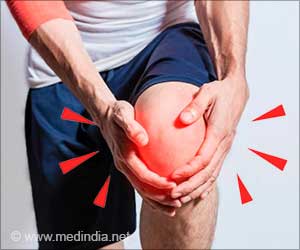A gut hormone first described in 1928 plays an unanticipated and important role in the remote control of blood sugar production in the liver.
A gut hormone first described in 1928 plays a surprisingly important role in the remote control of blood sugar production in the liver, according to a report in the August 6th Cell Metabolism, a Cell Press publication. What's more, the researchers show that rats fed a high-fat diet for a few days become resistant to the glucose-lowering hormone known as cholecystokinin (CCK).
"We show for the first time that CCK from the gut activates receptors to regulate glucose levels," said Tony Lam of the University of Toronto. "It does so via a gut-brain-liver neuronal axis."Researchers already knew that CCK levels rise in the upper intestine in response to nutrients such as lipids to lower food intake, Lam explained. Now, his team shows that the CCK hormone binds local receptors on nerves of the small intestine, sending a powerful signal to the brain. The brain in turn tells the liver to stop producing glucose.Lam said his group described the gut-brain-liver circuitry in a paper published last year. The new study shows that it is CCK that acts as the trigger.
A primary increase of CCK-8, the biologically active form of CCK, in the upper intestine lowers glucose production independently of any change to circulating insulin levels, they found. CCK-8's effects depend on activation of CCK-A receptors and the signals they send to the brain and on to the liver, where glucose production slows. Those effects of the hormone begin to fail early in the onset of high-fat diet-induced insulin resistance, they report.
The findings suggest that CCK resistance, like insulin resistance, might be a key contributor to the high blood sugar that often comes with a high-fat diet. It also suggests that drugs targeting the CCK receptors in the gut may hold promise for therapy. That's key, Lam said, because such gut-targeted drugs might be expected to have fewer side effects than currently available diabetes drugs that work directly on the liver.
"This raises the possibility that we might be able to tap into the circuitry [to lower blood sugar]," Lam said. "At least now we know where to start."Drug combinations that could increase sensitivity to both insulin and CCK might better combat diabetes than either could alone, he added. While the magnitude of CCK's influence over glucose levels relative to the effects of insulin aren't yet known, Lam said it's now clear both are important and neither works properly in the case of diabetes or obesity.The researchers further suggest that CCK's role in the gut might somehow explain why people often show improvements in their blood sugar levels following gastric bypass surgeries, even before they lose any weight.
"Since we described that duodenal CCK normally triggers a gut-brain-liver axis to lower glucose production but fails to do so in high-fat fed rodents, we propose that duodenal bypass surgeries improve glucose tolerance in diabetes and obesity partly because the surgery bypasses an acquired defect involving duodenal CCK resistance in response to high-fat feeding," they wrote. Further studies are needed to explore that notion.
Advertisement
Source-Eurekalert
THK













